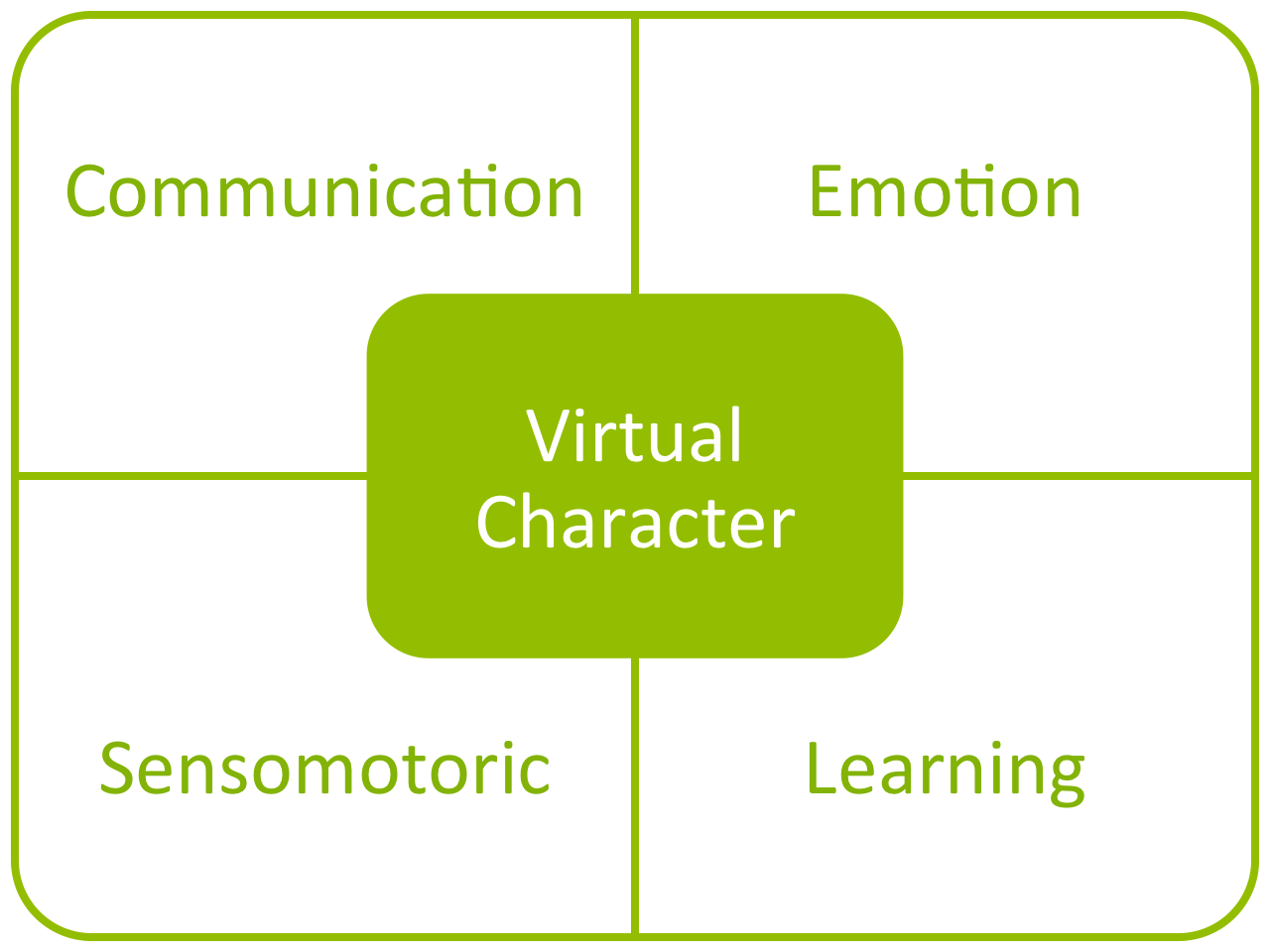The graduate program CrossWorlds investigates the development of social processes in linked virtual and real social worlds from four complementary and interconnected perspectives. Figure 1 presents an overview of the four research areas.
These four perspectives provide an appropriate framework for the analysis and development of virtual characters or multi-user scenarios which are central components of the link between virtual and real social worlds. The presented research areas are systematically related to each other and together and enable a complete view on the phenomenon of linked social worlds:
- Communication addresses the necessary competences for the orientation in social environments
- Sensomotoric covers the perceptual properties that are required to interact with and within these environments
- Emotion investigates, how emotional processing can become part of the virtual characters cognitive system in order to render the social interaction process more naturally
- Learning engages the question to which extent linked social interaction in virtual and real worlds can facilitate learning
The presented research areas require interdisciplinary research that engages both the technological and the social aspects of social interaction within linked virtual and real environments. The academic infrastructure of Chemnitz University of Technology facilitates this interdisciplinary approach by contributing and joining expertise from communication science, media studies, philosophy, neuro- and cognitive science, emotion and social psychology, artificial intelligence, media computer science, technological computer science, and graphical data processing. To meet the necessity of interdisciplinary cooperation, each research area is being addressed within a vibrant network across the involved disciplines.
The acquired qualifications within the graduate program provide an excellent fit both with working areas of applied technology in a leading position, for example the design of social interaction in computer games and natural interfaces, and consecutive research positions.
